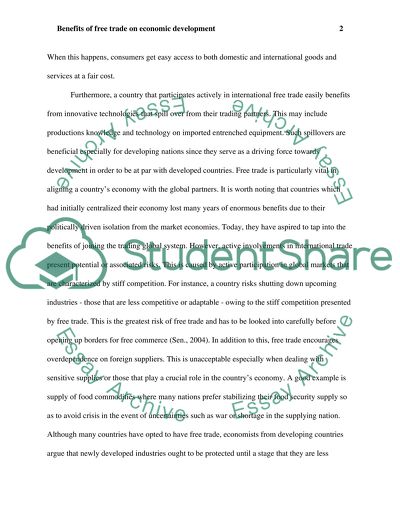Cite this document
(“Positive Impacts of Free Trade on Economic Development Essay”, n.d.)
Positive Impacts of Free Trade on Economic Development Essay. Retrieved from https://studentshare.org/macro-microeconomics/1491035-positive-impacts-of-free-trade-on-economic-development
Positive Impacts of Free Trade on Economic Development Essay. Retrieved from https://studentshare.org/macro-microeconomics/1491035-positive-impacts-of-free-trade-on-economic-development
(Positive Impacts of Free Trade on Economic Development Essay)
Positive Impacts of Free Trade on Economic Development Essay. https://studentshare.org/macro-microeconomics/1491035-positive-impacts-of-free-trade-on-economic-development.
Positive Impacts of Free Trade on Economic Development Essay. https://studentshare.org/macro-microeconomics/1491035-positive-impacts-of-free-trade-on-economic-development.
“Positive Impacts of Free Trade on Economic Development Essay”, n.d. https://studentshare.org/macro-microeconomics/1491035-positive-impacts-of-free-trade-on-economic-development.


